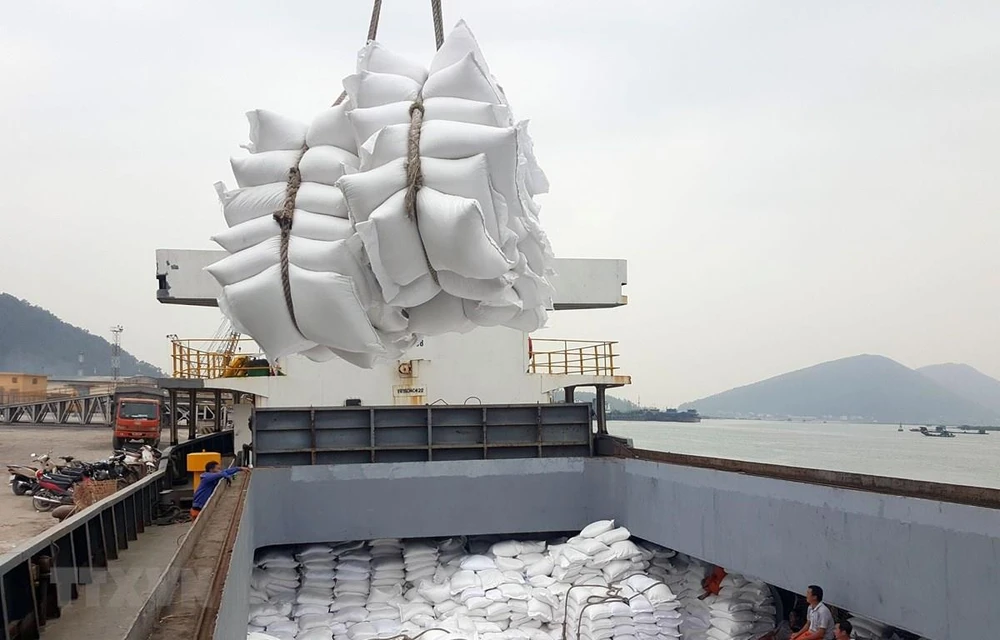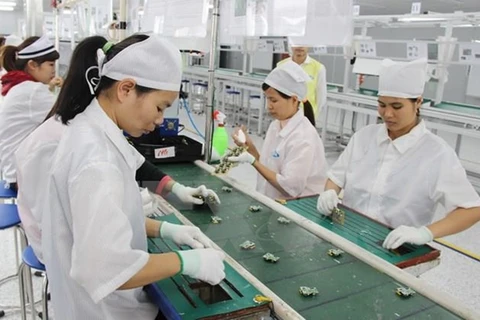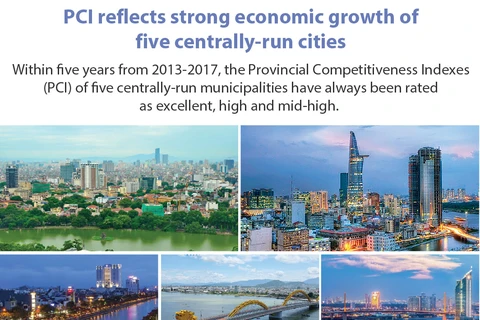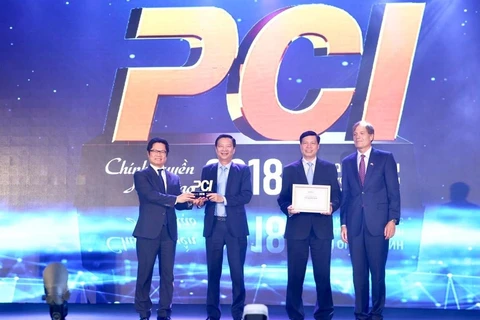
Hanoi (VNA) - The number of small-scale foreign direct investment (FDI) enterprises are on the rise, with the proportion of those having capital of less than 5 billion VND (214,831 USD) increasing to 37.7 percent in 2018 from 29.6 percent in 2015, according to the Provincial Competitiveness Index (PCI) Report 2018.
The annual PCI Report always presents survey results on opinions of FDI enterprises operating in Vietnam on improvements in management quality and challenges facing foreign firms in the country.
[Vietnam urged to reduce logistics costs to enhance competitiveness]
The 2018 PCI Report showed many positive signs. FDI enterprises are still optimistic about Vietnam’s business environment with many bright colours. They said that this is the result of the tireless reform efforts of the Vietnamese Government, which made regulation enforcement burdens ease, indicators related to corruption change positively, and the quality of infrastructure improve.
Small-scale FDI businesses
Dau Anh Tuan, head of the Legal Department at the Vietnam Chamber of Commerce and Industry (VCCI), stressed that FDI enterprises operating in Vietnam are mainly small-scale and export-oriented ones, and specialise in supplying goods and services to major multinational corporations through global value chains.
Foreign investors in Vietnam often come from the Asian region, including the Republic of Korea, Japan and Taiwan (China).
According to the report, most FDI businesses produce metals, computers, electronics, optical products, rubber and plastic products. However, the increasing number of hi-tech enterprises indicates an improvement in industrial production efficiency.
Troubles from customs, social insurance and tax regulations
FDI firms said efforts by the Government to improve the business environment have proven effective when relevant policies have impacted business practices.
Notably, only 1.4 percent of responding businesses complained that they were over-inspected (receiving eight inspection delegations and more in a year), decreasing to 3.4 percent in 2017 from 4.6 percent in 2016.
According to Tuan, foreign firms said that they were facing the most troubles in the three administrative procedure areas of customs, social insurance and tax.
Regarding informal charges, the report said that the situation was also improved significantly, with 36.5 percent of responding businesses said that State employees used the monitoring of legal compliance to require informal charges, lower than the 44.6-percent rate in 2017.
In addition, 39.9 percent of the firms did not hesitate to disclose in the questionnaires that they used to pay informal charges for inspectors, down 5 percent compared to the figure last year.
And only 6.8 percent said they had to pay informal charges for land-related procedures, 10.7 percent lower than that of 2017.
Power cuts cause economic losses
In production, power outages will cause losses to business growth. The unstable power supply is still widespread, with up to 87 percent of FDI enterprises complaining that they were affected by an average of six power cuts in 2018.
Another factor affecting the production efficiency is labour force, but the quality of labourers has almost not improved in recent years.
According to FDI businesses in localities, the quality of high school education and vocational training for unskilled workers is quite positive, but Vietnam still lacks jobs that require high skills.
In a different development, the US-China trade war is partly bringing about advantages to domestic workers.
FDI enterprises said they are willing to pay attractive salaries and good remuneration for skilled workers in order to push production of higher value-added products for export to the US.
The readiness to increase labour costs is primarily in the areas of producing commodities affected by the US’s tax policy. However, these costs focus on increasing salaries and remuneration for employees. In fact, businesses are less inclined to invest resources in improving working conditions or increasing costs for activities of workers' representatives, Tuan said./.

























